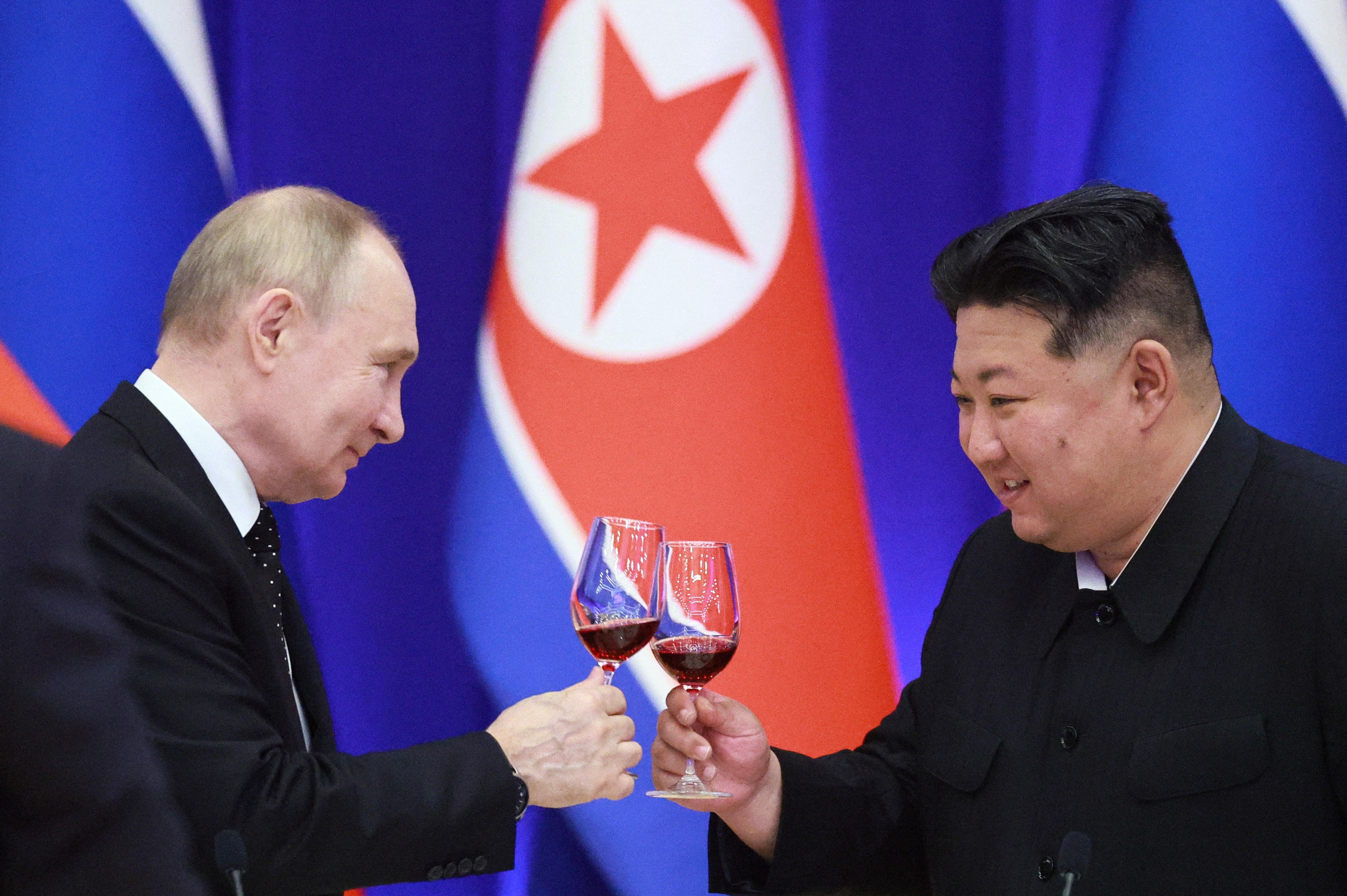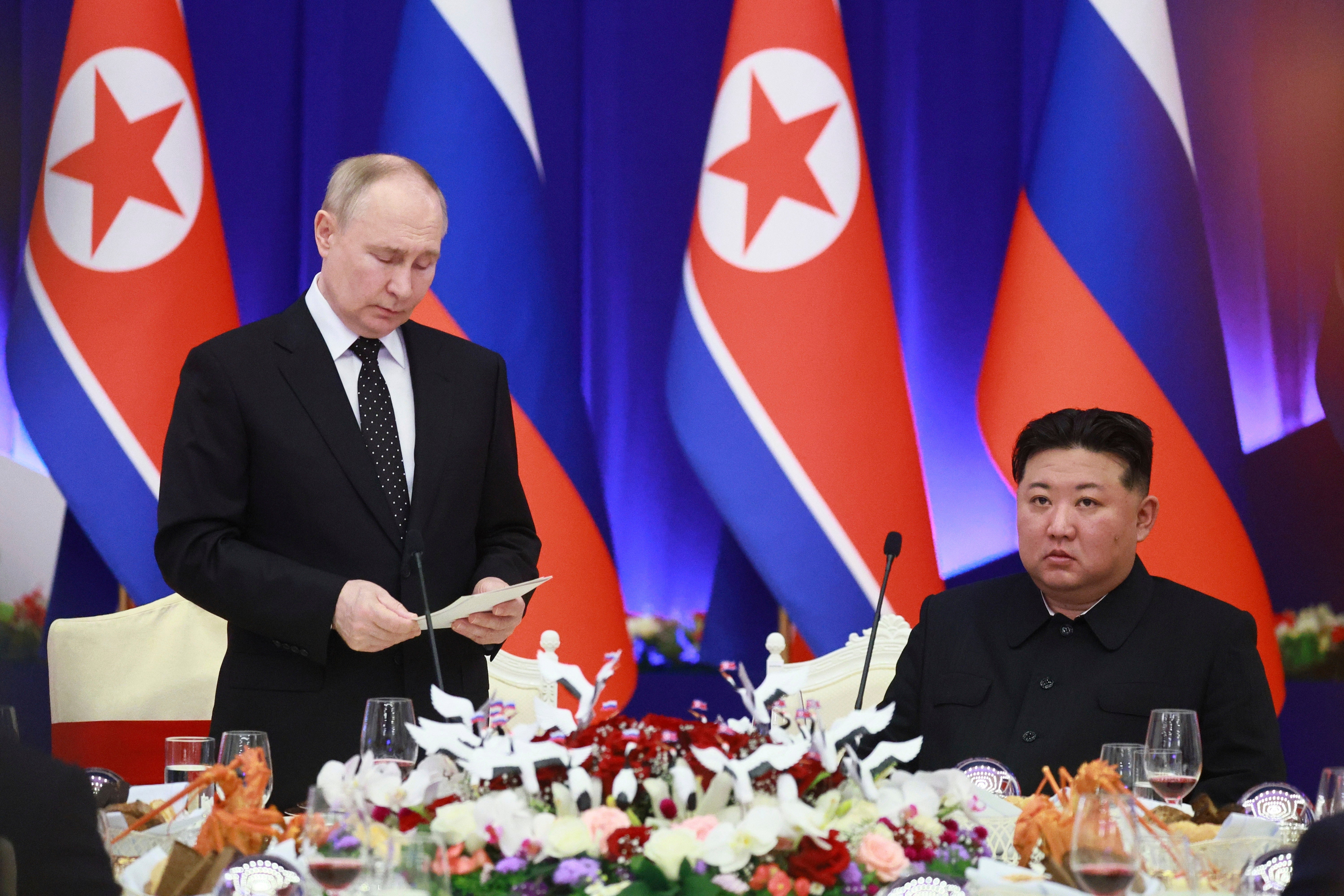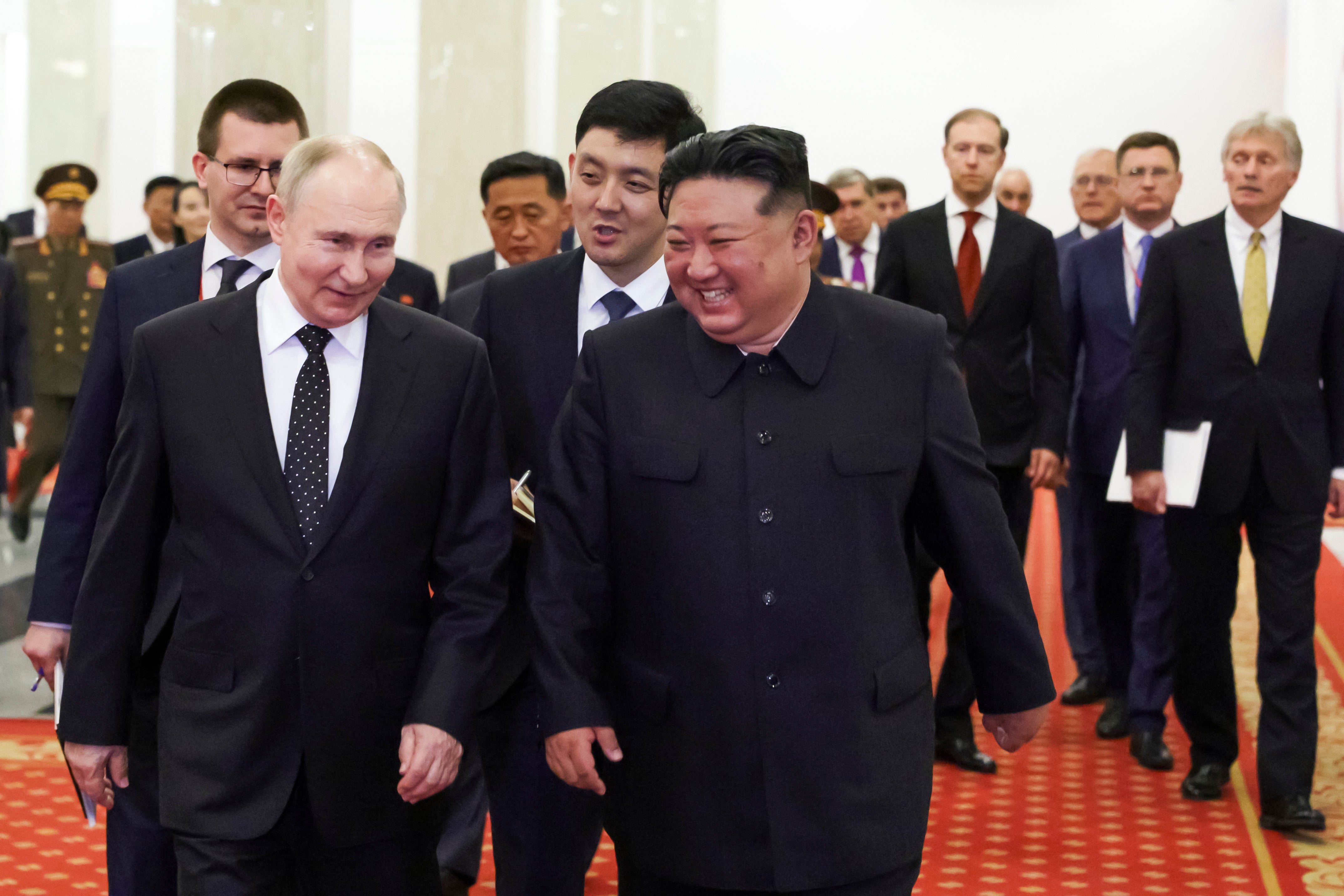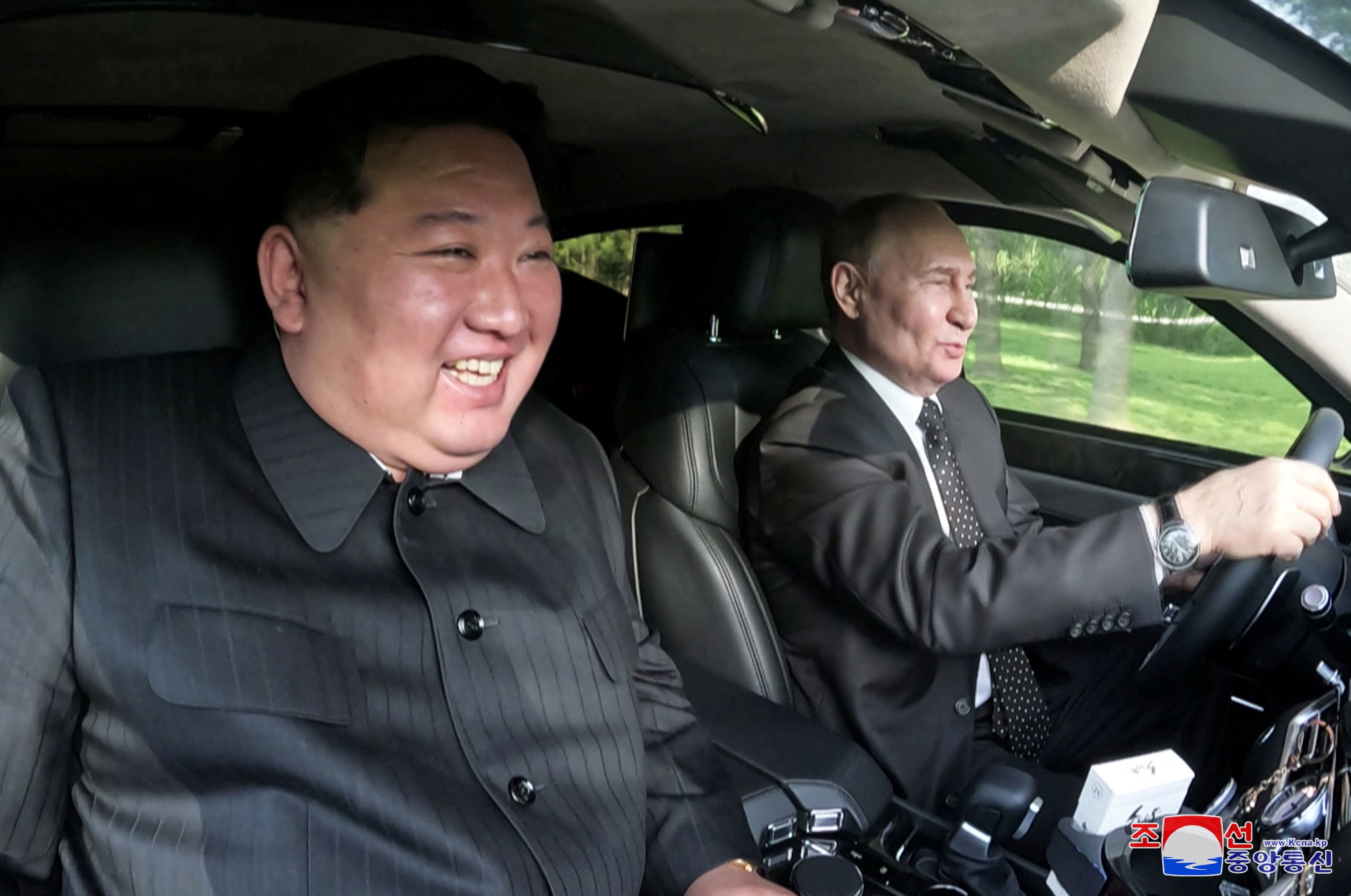Why the deal between North Korea and Russia falls short in bid to create ‘axis of impunity’ to rival Nato
Analysis: Experts say deal between Putin and Kim could have major military implications, despite its limitations

Vladimir Putin’s military pact with Kim Jong-un represents a “pariah partnership” between two countries that are emerging as key components of an autocratic, anti-Western “axis of impunity”, experts say.
During his meeting with the North Korean leader on Wednesday, Putin signed a “comprehensive partnership agreement”, marking a significant breakthrough and upgrade in a relationship that had been gathering dust until Russia launched the Ukraine war.
Isolated on the international stage with Western sanctions taking a toll on the Russian economy, Putin has been casting around for ways to alleviate the pressure and feed his war machine. Western intelligence agencies say Moscow has begun importing large volumes of North Korean arms in exchange for basic food supplies and technological knowhow.
Rachel Lee, a senior fellow at the Stimson Center’s Korea programme, told The Independent that the treaty “has the potential to have major military implications in the region”.

The agreement includes a clause where the two countries have agreed to provide "mutual assistance in the event of aggression" against either country, said Putin.
But the Russian leader, who has continued to call his full-scale war against Ukraine a “military operation” since 2022, did not spell out what would constitute aggression or what assistance would be required under the treaty.
North Korean state media published the text of the deal on Thursday but it provides only a little more clarity. Article 4 of the deal states that if either of the countries is invaded and pushed into a state of war, the other must deploy “all means at its disposal without delay” to provide “military and other assistance”.
Dr Colin Alexander, a political communications expert at Nottingham Trent University, told The Independent that the wording of the deal was kept deliberately vague.
“This is to encourage caution by those who may wish to attack Russia or North Korea either in direct military confrontation or in underhand moves that Moscow and Pyongyang have the liberty of interpreting as aggression,” Alexander said, adding that this could be anything from a cyberattack to reconnaissance surveillance or sabotage.

Leif-Eric Easley, a professor at Ewha University in Seoul, said the deal was “a cynical effort to legitimise cooperation between Russia and North Korea in evading sanctions”.
But while their collaboration is often presented as a counterweight to the West, North Korea and Russia’s ability to uphold such a deal is neither credible nor durable like the US alliances with Japan, South Korea and Nato countries, Easley says, given “Pyongyang and Moscow lack the [necessary] shared institutions, rule of law, and functional interdependence” to be considered genuine allies.
The deal has angered South Korea, which has said it will review its decision not to supply arms to Ukraine in response.
It describes the agreement as a direct threat to its security. Bolstered by the backing it has received from Russia since Putin and Kim’s last summit in September in Vladivostok, the Kim regime has intensified military activities on its border with South Korea and a 2019 peace agreement has been suspended by both sides.

Pyongyang has since begun frenzied development at the Military Demarcation Line, already a heavily armed border that separates the two Koreas.
On the eve of Putin’s visit, “multiple” North Korean soldiers were killed in land mine blasts while laying explosives. That was just days after the South Korean military fired warning shots after some North Korean soldiers crossed the MDL and entered the demilitarised zone, a 2.5-mile-wide buffer between the two countries.
Easley said that while attention was focused on “Putin‘s pariah partnerships”, the Kim regime is “recklessly endangering soldiers with rushed construction work at the inter-Korean border”.

Alexander said a “stronger or emboldened North Korea” could potentially increase the threat level in the Korean peninsula, though ultimately this deal does not change the fundamental dynamics in the region – Beijing remains the most important ally for both Russia and North Korea.
“The main powerbroker in the region remains China and they continue to desire a buffer state between themselves and the 30,000 US troops and armaments in South Korea,” he said.
The treaty has drawn comparisons to Nato, but Alexander said it “does not appear to be one of the same strength of what Nato has, which says ‘an attack on one member is an attack on all members’”.
The wording of Article 4 of the new treaty restores a near-identical clause from a USSR-North Korea treaty signed in 1961, which was replaced by one in 2000 that offered weaker security assurances.
Lee said we should be “level-headed about the practical implications” of this change, however, given that earlier security clause was never actually invoked.
Join our commenting forum
Join thought-provoking conversations, follow other Independent readers and see their replies
Comments
Bookmark popover
Removed from bookmarks